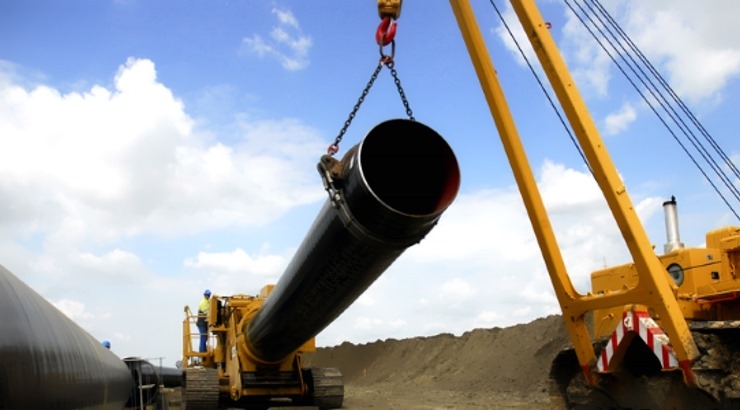
China has reportedly taken over the financing of East Africa’s longest oil pipeline project, offering a new lifeline to the highly controversial infrastructure project.
This follows the signing of a deal between TotalEnergies – the lead investor – with China Petroleum Pipeline Engineering (CPP) for the construction and supply of line pipe, a move that tilts the East African Crude Oil Pipeline (Eacop) project to Beijing.
CPP, a subsidiary of state-owned China National Petroleum Corporation (CNPC), joins its compatriot China National Offshore Oil Corporation (CNOOC), which owns a 28% stake in the Uganda oil and 8% of Eacop.
The new deal comes days after Standard Chartered Bank withdrew a $5 billion offer after yielding to pressure from activists who argue the project could generate seven times more carbon emissions annually than the rest of the country.
A spokesman of the Stanchart was quoted as saying the bank “isn’t involved in the financing” of the 1,443km crude pipeline from western Uganda to the Indian Ocean coast of Tanzania.
The withdrawal mirrors a similar incident that occurred early last year when at least 10 banks walked away from the venture terming it an environmental risk.
The withdrawal by top lenders from the Eacop project meant that the pipeline, which was expected to cost $3.55 billion, would cost $5 billion – forcing the shareholders of Eacop to source for more money.
However, executives of TotalEnergies (formerly Total), which holds a 62% stake in the project, were quick to point out that a total of $2 billion would be financed through shareholders’ equity while $3 billion would come from banks.
Other shareholders of Eacop include Uganda National Oil Company, Tanzania Petroleum Development Company, and China National Offshore Oil Corporation.
Eacop is expected to transport 216,000 barrels-per-day of oil from Tilenga and Kingfisher oilfields in the Lake Albert basin to Tanga Port on Tanzania’s coast.
Between 2022 and 2025, the project is expected to undertake the land acquisition, contract award, detailed engineering, procurement, construction, and commissioning, including hydro-testing, and first oil from upstream facilities.
However, as of today, there is no clear timeline when construction will start – which means TotalEnergies is under pressure to close deals for the project.
At 1,443 kilometres, the Hoima-Tanga crude oil pipeline is expected to be the longest electrically heated crude oil pipeline in the world.
The pipeline will be heated so as to keep the gummy crude liquid enough to flow.
The facility will move Uganda’s crude oil from Kabaale, in the western Hoima region, to Chongoleani in Tanzania.
The 24-inch diameter pipeline is expected to move 216,000 barrels of oil per day at a cost of $12.2 per barrel. This will save Uganda $3.7 per barrel compared to an earlier route from Hoima to Lamu in Kenya at a cost of $5 billion.










